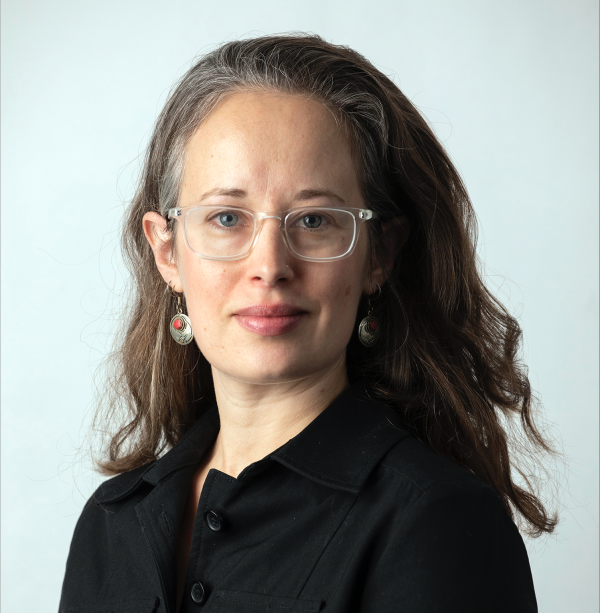
Emily Badger, a staff writer for "The New York Times" gives the Mumford Lecture titled "Pressing Change in the Increasing Inflexible City" on Thursday, April 27 at 6:00 p.m.
Emily Badger, the New York Times urban policy writer, will deliver this year's Lewis Mumford Lecture at The City College of New York on Thursday, April 27. Her talk, 6 - 7:30 p.m. in the Bernard and Anne Spitzer School of Architecture's Sciame Auditorium, is entitled, "Pressing Change in the Increasing Inflexible City." It will focus on how cities must change as the nation emerges from the pandemic. To watch virtually, a Zoom link is available.
Badger writes about cities and urban policy for The Upshot from the Times' Washington bureau where she covers the interconnections between housing, transportation, and inequality.
Her Mumford lecture discusses how cities will respond to the changing dynamics of urban life. Buildings that once housed businesses will have to be modified to accommodate the needs of those who will soon live there. Hotels, once temporary lodgings for people on the road, will have to be adapted as single-room-occupancy spaces for those who need permanent addresses. Sidewalks will turn into eateries, and parking lanes will become bus corridors. Increasingly, roads dedicated to cars will be adapted as bicycle paths and walkways for pedestrians.
In a recent article, Badger likened the process of transforming an urban office tower into apartments to solving a twenty-five story Rubik's cube. Some buildings have operational windows, making them more suitable for habitation. Others, like modern hermetically-sealed office towers, require far more extensive – and expensive – modification. Local rules add still more complexity. In San Francisco, for example, there are stricter seismic requirements for apartments than offices. In other places, like Manhattan, building age and location-related legal limits constrain the number of office floors that can be turned into residences.
Despite the mounting pressure for flexibility in the urban environment, many US cities have become increasingly inflexible to change, largely through decades worth of building and zoning codes layered upon good intentions and not-in-my-backyard politics. Adapting cities for the future — from the level of individual buildings to citywide policy — will require understanding and confronting a decades-long legacy of inflexibility.
About the Mumford Lecture
Each spring, the Spitzer School of Architecture and its Urban Design Program present the Lewis Mumford Lecture and seminar. Named for writer, architecture critic, and urbanist Lewis Mumford, who attended City College, the series invites the world’s most distinguished urbanists to speak freely and publicly about the future of cities and the social purposes of architecture. This series was initiated by the late Michael Sorkin, distinguished professor of architecture and director of the Urban Design Program at the Spitzer School, and curated by him for eleven years.
About the City College of New York
Since 1847, The City College of New York has provided a high-quality and affordable education to generations of New Yorkers in a wide variety of disciplines. CCNY embraces its position at the forefront of social change. It is ranked #1 by the Harvard-based Opportunity Insights out of 369 selective public colleges in the United States on the overall mobility index. This measure reflects both access and outcomes, representing the likelihood that a student at CCNY can move up two or more income quintiles. Education research organization Degree Choices ranks CCNY #1 nationally among universities for economic return on investment. In addition, the Center for World University Rankings places CCNY in the top 1.8% of universities worldwide in terms of academic excellence. Labor analytics firm Emsi puts at $1.9 billion CCNY’s annual economic impact on the regional economy (5 boroughs and 5 adjacent counties) and quantifies the “for dollar” return on investment to students, taxpayers and society. At City College, more than 15,000 students pursue undergraduate and graduate degrees in eight schools and divisions, driven by significant funded research, creativity and scholarship. This year, CCNY launched its most expansive fundraising campaign, ever. The campaign, titled “Doing Remarkable Things Together” seeks to bring the College’s Foundation to more than $1 billion in total assets in support of the College mission. CCNY is as diverse, dynamic and visionary as New York City itself. View CCNY Media Kit.